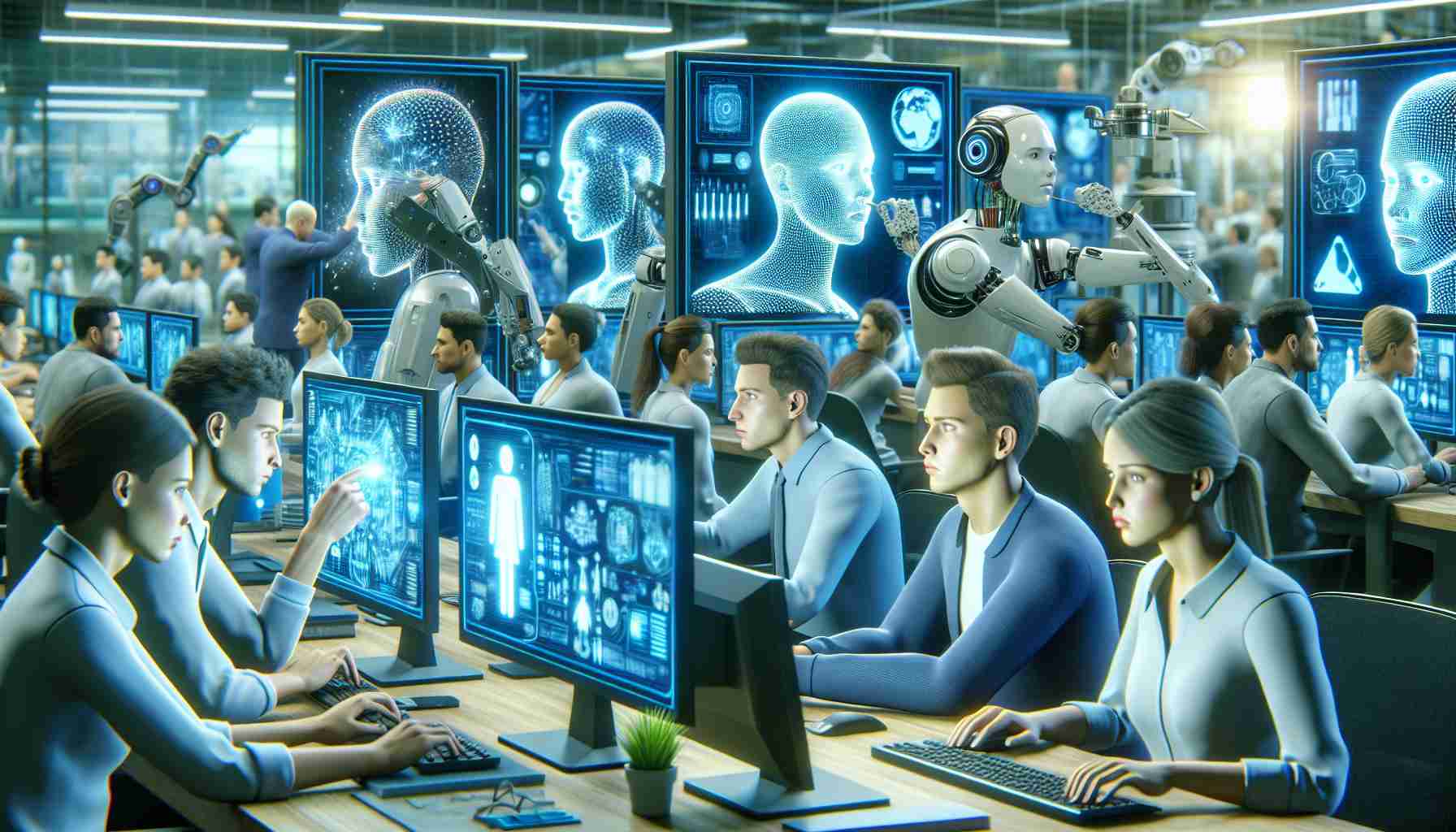A new study by EduBirdie, an academic writing service, reveals a fascinating trend among Generation Z professionals: approximately 36% report feeling guilty about utilizing artificial intelligence (AI) tools like ChatGPT in their jobs. This sentiment reflects a deeper concern that overdependence on AI could undermine their ability to think independently.
Professor Minoru Eto, who has experience at NTT Docomo among other places and currently works with the Research Institute for Interdisciplinary Science at Osaka University, expands on the topic. He suggests that people in fields that demand strategic thinking, unique ideas, scholarly insights, and artistic expression may feel a sense of remorse when they integrate AI into their work partially. They worry that their authentic value and contributions might be called into question.
The research, released by EduBirdie on January 24, 2024, surveyed 2,000 individuals from Gen Z about their use of AI technologies such as ChatGPT at work. While the benefits of AI were recognized, there was also an articulated concern that critical thinking skills might be eroded by heavy reliance on these tools.
Professions that might wrestle with this issue include writers, journalists, designers, illustrators, music producers, video creators, and researchers—whose careers are established on intellectual and creative capacities. Likewise, roles that hinge on specialized knowledge and skills, such as lawyers and consultants, could also be affected by a sense of ethical dilemma when balancing AI use with professional integrity. These findings ignite a dialogue about the need for a measured approach to AI in the workplace, ensuring technology serves as a complement rather than a replacement for human ingenuity.
Current Market Trends
The use of AI in the workplace is rapidly increasing across various sectors. As digital transformation accelerates, AI tools are becoming more sophisticated and accessible, enabling businesses to optimize operations, enhance productivity, and drive innovation. For instance, AI is increasingly used in customer service for chatbots, in HR for recruitment and employee management, and in finance for forecasting and risk assessment.
With the integration of AI, companies often experience increased efficiency and cost-effectiveness. However, there’s a growing trend where AI applications are moving beyond administrative tasks and beginning to influence areas traditionally driven by human creativity and decision-making.
Forecasts
It is expected that the presence of AI in workplaces will continue to grow, with a particular emphasis on the development of collaborative AI, where humans and machines work together symbiotically. According to studies such as those from PwC and Gartner, AI could contribute up to $15.7 trillion to the global economy by 2030 and by 2025, customer service organizations that embed AI in their multichannel customer engagement platform will elevate operational efficiency by 25%.
Key Challenges and Controversies
Key challenges associated with the increased use of AI in the workplace include ensuring data privacy, mitigating biases in decision-making AI, and managing workforce displacement. The onset of AI-induced automation brings both opportunities and threats to job security, potentially leading to significant societal and economic shifts.
Controversy also exists around the ethical use of AI, including concerns over the accountability of decisions made by AI and the transparency of AI algorithms. Moreover, there might be ongoing debates about intellectual property rights when work is created with the assistance of AI.
Advantages
AI offers numerous benefits in the workplace, including:
– Enhanced efficiency by automating routine and time-consuming tasks.
– Increased accuracy and objectivity in data analysis and decision-making processes.
– The ability to handle large volumes of data and generate insights not easily discernible by humans.
Disadvantages
However, there are also disadvantages to the reliance on AI:
– Potential job displacement as AI takes over certain roles and tasks.
– The risk of decreased human agency and critical thinking skills.
– Possible overreliance on AI, leading to atrophy of professional judgment and creativity.
Relevant Links
For further insights into how AI is shaping the workplace and economy, here are links to some prominent organizations and research centers:
– PwC: PricewaterhouseCoopers is a global network of firms providing consulting and advisory services, which often publishes reports on AI and the workplace.
– Gartner: A leading research and advisory company that provides insights, advice, and tools for leaders in IT, finance, HR, and more, touching on the impact of AI in these areas.
The implications of AI in the workplace, especially for younger generations like Gen Z, indicate the need for balancing technology and human touch, ensuring that AI serves as an aid rather than a hindrance to professional development and innovation.
The source of the article is from the blog elblog.pl

